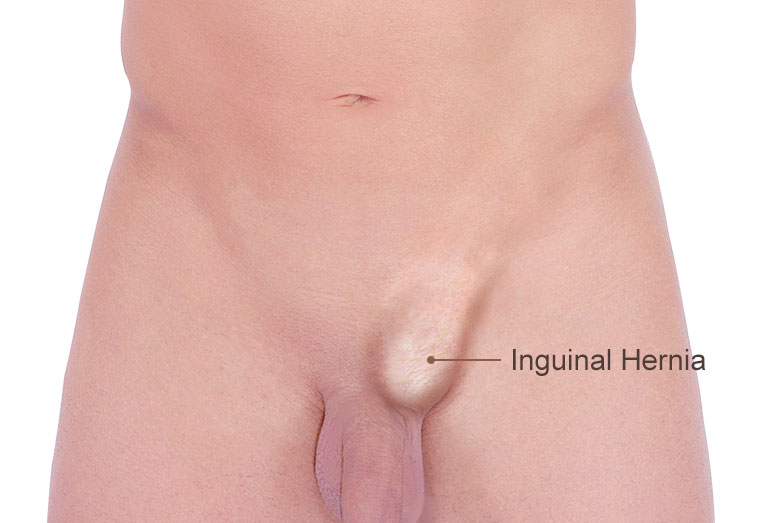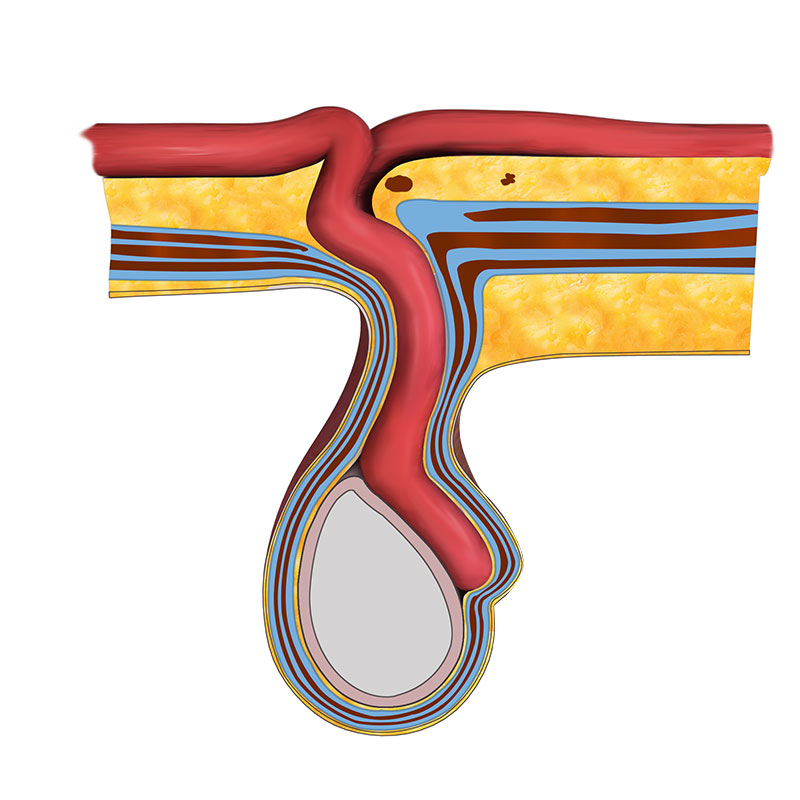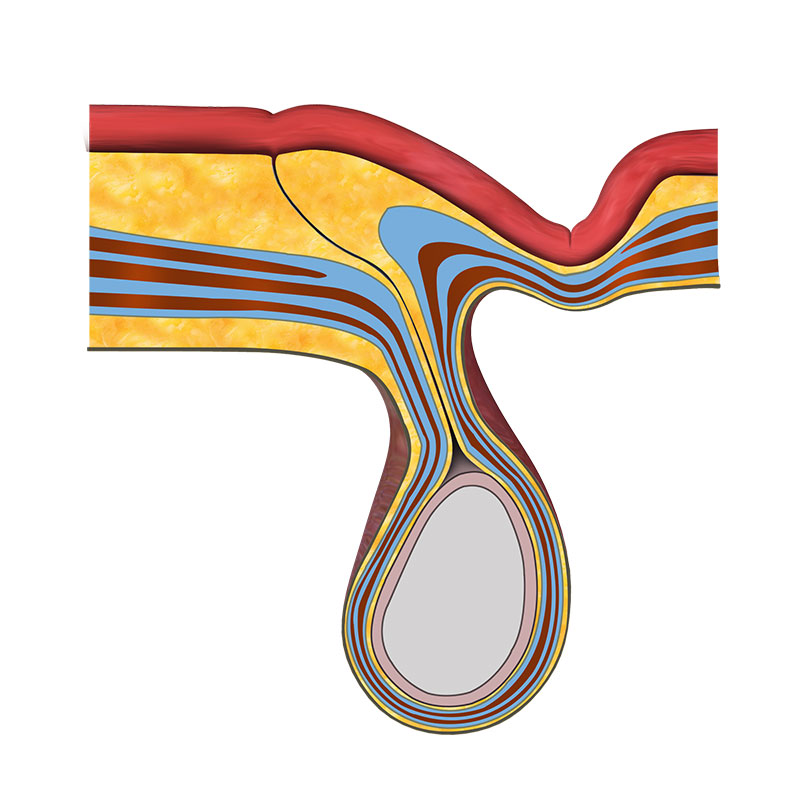
An inguinal hernia is a bulge that forms when a part of your small intestine or fatty tissue protrudes through a weak spot in the groin (area between the upper thigh and lower abdomen) or scrotum (muscular sac containing male testes).
Mr. Abhay Chopada a laparoscopic general and colorectal consultant specialises in in treatment and management of different types of hernias including inguinal hernia. As one of UK’s Top Surgical Gastroenterologists, is well known for his expertise in this field.
A hernia is a bulge formed when the internal organs of your abdominal cavity are pushed through a weakened spot in your abdominal wall. Hernias most commonly occur between the area of your rib cage and the groin.

An inguinal hernia is a bulge that forms when a part of your small intestine or fatty tissue protrudes through a weak spot in the groin (area between the upper thigh and lower abdomen) or scrotum (muscular sac containing male testes). Inguinal herniasoccur more commonly in men than women. There are two types of inguinal hernia:
There are two types of inguinal hernia:

Most inguinal hernias are caused when the walls of the abdominal muscles fail to close before birth. It commonly occurs in malesbecause of the way the reproductive system develops. Before birth, the testicles are formed within the abdomen and slowly descend into the scrotumthrough the inguinal canal. The inguinal canal is closed after birth, preventing the testicles from moving back into the abdomen, but leaving enough space for the spermatic cord to pass through. Weakness in this region can lead to the formation of a hernia. The risk of indirect inguinal hernia is higher in premature infants as the baby does not get enough time in the womb for the closing of the inguinal canal.

The abdominal wall may become weaker in later life due to tissue degeneration and result in an inguinal hernia. Pressure on the weak spot due to coughing, straining, or lifting heavy objects can cause a bulge in the groin. Being overweight or undergoing a prior surgery is also a risk factor for inguinal hernia.